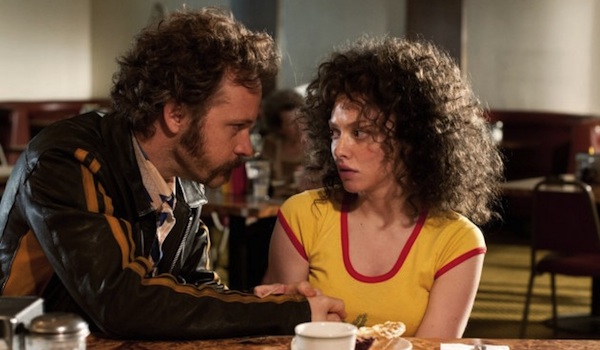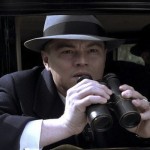Lovelace Review
Ordinary vs. extraordinary. Linda Boreman was the former, but she found herself in the midst of a situation that was very much the latter. Lovelace is both the name Boreman would carry throughout her adult life and the title of the, unfortunately, very ordinary cinematic chronicle of her bizarre career and horrific marriage. While it’s anchored by some fine performances, Lovelace is let down by a screenplay that feels incredibly unmotivated.
Boreman (Amanda Seyfried) grew up with rather strict, religious parents (Sharon Stone and Robert Patrick), but from frame one on, we know her as a rebel. She breaks curfew with her girlfriend (Juno Temple) for some go-go dancing and grass smoking with an older man, Chuck Traynor (Peter Sarsgaard), who Linda would later marry. That marriage severely damaged her relationship with her parents, but that didn’t matter. Linda was on her way to stardom; she just needed to do one little porno movie first.
That movie was called Deep Throat, and while it’s aspirations were modest, it went on to become a cultural sensation. Linda (now Lovelace) was being reference by Johnny Carson, and her benefactors were beating down the door for a Deep Throat sequel. Linda wasn’t interested; she was put off by the whole endeavor and wanted to go straight. But Chuck wasn’t interested in any of that. If Linda having sex with other men was what would bring the money in, then as far as he was concerned, there weren’t enough men in Malibu for Linda to have sex with.
Lovelace feels a lot like Boogie Nights, but it’s based on a true story (and a muddled one at that). It seems odd, then, that it doesn’t carry more weight. The film has its moments; a late night phone call between Linda and her father will break your heart. But this is a movie that simply goes through the motions from a character perspective, and a lot of real-life ambiguity is lost trying to be clever with structure.
The film regularly flashes forward to Boreman/Lovelace/Marciano (she’s divorced from Chuck in these jumps in time) undergoing a lie detector test. She wants to publish a memoir about her marriage, but her publisher isn’t certain her claims are believable. To be fair, she passes the poly, but she’d be dogged by claims of stretching the truth and creating false realities for the rest of her life. Very little of this makes the movie. Instead, we get horizontal versions of her life that vary greatly as far as her willingness to participate in porn goes, as well as the way she’s treated by her husband. In the first, she’s a happy porn star. In the second, she’s a victim, plain and simple. Chuck is kind of a monster in both cases, but much more so in the second half of the film. Because he’s so bad (and because Sarsgaard’s performance is so convincing), it’s that half that sticks, and gone is this story’s uncertainty.
So Sarsgaard is pretty great. What about Seyfried, you ask? Better than adequate, but not quite great. She goes there physically, and psychologically, emotionally, she gets both the doe-eyed optimist and the harried victim just right. When the film asks her to get even a little big edgier, however, she’s on shakier ground. That just isn’t her bag; remember Chloe?
Rob Epstein and Jeffrey Friedman direct the film without much personality—a surprise considering their backgrounds (The Times of Harvey Milk, Howl) and this story’s potential as a glitzy bit of pop nostalgia. “Potential” seems like the most apropos word because Lovelace had a ton of it, but the end result feels rather inconsequential.
















